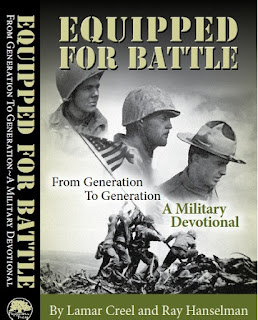As we have watched this
story develop over the last few verses, we have observed a very
sorrowful Naomi bidding fair well to her daughters-in-law as she
returns to her homeland. Naomi has provided ample arguments as to why
the widowed Orpah and Ruth should continue in their own country and
remarry, and although Orpah has decided that is what is best for her,
Ruth clung to Naomi's side. In chapter one and verse sixteen we
discover the resolve of Ruth to continue with Naomi where it reads:
And Ruth said, Entreat
me not to leave you, [or] to return from following after you: for
where you go, I will go; and where you lodge, I will lodge: your
people [shall be] my people, and your God my God:
With
Ruth clinging to Naomi, Ruth now speaks for the first time in this
book. She says first, “Entreat me not to leave you, or to return
from following after you:” Let us imagine this tearful plea
from this daughter-in-law for a moment. How many daughters-in-law
have this kind of relationship with their mother-in-law? Not many, we
might venture to say, however, Ruth does. She begs Naomi to allow her
to continue being with her. Ruth doesn't want to return home, and
regardless of whether or not she might be remarried in her home
place, she still desires to stay with Naomi. In other words, Ruth is
willing to forsake all she knows and loves for a greater love which
is her relationship with Naomi.
Next we
learn more or Ruth's resolve. She said, “for where you go, I
will go; and where you lodge, I will lodge” Imagine the trust
within Ruth. Imagine the willingness within Ruth, and think about
what kind of commitment this was on her behalf. Ruth had never been
where Naomi was going, and she certainly didn't know where they would
stay when they arrived. Ruth knew very little of the plan, however,
she trusted in the relationship with Naomi to the point that where
she went with her was of little importance compared to the
relationship itself.
Ruth
adds, “your people shall be my people, and your God my God.”
Herein lies the greatest purpose of mind within Ruth as she
abandons all she has ever known in the way of relationships both
fleshly and spiritually, and resigns her whole being over to Naomi's.
Ruth has resolved that the value of having the relationship with
Naomi exceeds every person she has ever known, every form of worship
she has ever practiced, and now her life will be totally within the
care of Naomi's people and God.
Many
times this passage of scripture is used for a wife during wedding
ceremonies. The idea is that a woman is giving up all her former
relationships for the influence of the man's. What it shows us is
deep commitment and resolve that is truly necessary for a
relationship to last. There must be a decidedness within individuals
that purposes there will be nothing that shall separate them. Though
trials, misunderstandings, tragedies, etc. invade a relationship,
steadfastness is determined, and quitting is not an option. This was
the commitment of Ruth to Naomi, and as we continue with this story
we will discover the benefits from God for all who conduct themselves
in this manner.
Next
time we will look at more words from Ruth concerning her purposed
heart, so read ahead, and we shall join together then.
Until
tomorrow...there is more...
Look
for the new devotional book “Equipped for Battle – From
Generation to Generation” in all major bookstore sites,
www.amazon.com
; www.barnesandnobles.com
; download
to e-books, and find it locally at www.mrzlc.com/bookstore















